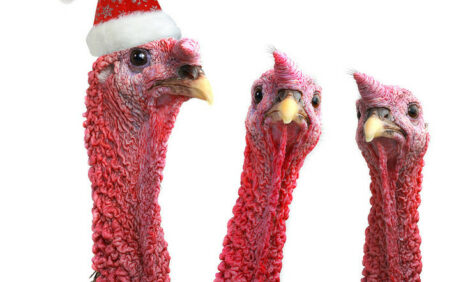



Protecting UK Livestock from Viral Disease
UK - Over 130 leading representatives from the animal health industry, UK agricultural sector, scientists and Parliamentarians met last week (17 March) to discuss how to put research into action to fight emerging virus threats to UK livestock. The event in London, which was organised by BBSRC and the Institute for Animal Health (IAH), highlighted the central role of IAH in animal viral disease research and provided a unique opportunity to share knowledge and facilitate partnerships across the animal health research and livestock sectors.
Speaking at the event, Dr Chris Oura from IAH said that such a joined-up approach was central to the success of the vaccination campaign to control the UK's 2007 bluetongue outbreak, "Preparing for bluetongue involved collaborating with many organisations."
He explained how the Joint Campaign Against Bluetongue (JAB campaign), which brought together experts from IAH along with vets, labs, international animal health organisations and the Met Office, had been instrumental in getting the message across to farmers. This resulted in the UK being the only country in Europe to have had BTV8 in 2007 and not get it again in 2008.
"Working as an industry, we knew we had to get the message across to farmers, and farmers responded by demonstrating a desperate thirst for knowledge. Farmers then took the message on board, vaccinated and brought the disease under control," he explained.
And IAH are looking out and preparing for the next major disease threat that could strike UK livestock. According to IAH's Acting Director Professor David Paton, diseases such as African horse sickness, African swine fever, bluetongue and foot-and-mouth disease all have potential to cause huge losses and impact on trade. But, he warned, "There are other diseases we are not aware of and so horizon scanning is necessary to try and find out and prepare for new threats.
"The fact that these 'transboundary' diseases impact on both developed and developing countries means that disease is a one-world problem and control is for the global good," he said.
With new containment facilities due in 2014, the Institute looks set to maintain its world-class position in animal viral disease research, guided by its new Director, Professor John Fazakerley, who will join IAH on 1 June 2011.
"In the foreseeable future, climate and environmental change, human population growth, urbanisation and globalisation threaten the security of UK and global food supplies. Separately and together, these factors are driving the emergence of new virus infections which threaten the productivity of our livestock, including poultry and aquaculture, and may, like influenza virus, spread from animals to cause disease in humans," said Prof. Fazakerley.
"The extensive BBSRC investment in new buildings and facilities and the staff expertise in virology, associated disciplines and diagnostics place IAH firmly at the forefront of the UK response to these threats."
Further Reading
| - | You can view our report on this meeting by clicking here. |









